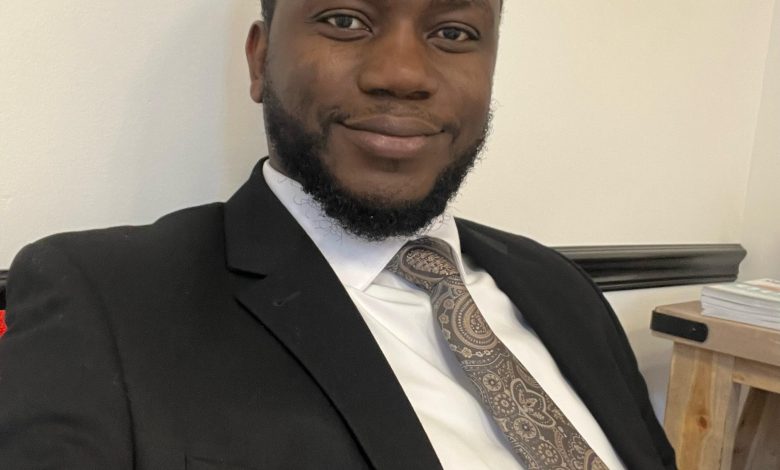Spotlight Interview: Interview with Victor Alemede on Enhancing Pharmacy Practice and Access to Oncology Medicines in Nigeria and Africa

November 26, 2022
Interviewer: Thank you for joining us today, Victor. As an experienced professional in oncology and pharmaceutical sales, how do you see the current landscape of pharmacy practice and access to oncology medicines in Nigeria?
Victor Alemede: Thank you for having me. The landscape for oncology medicines in Nigeria and Africa at large is challenging, but it’s also full of potential. Right now, access to oncology treatments is limited by several factors—high treatment costs, inadequate healthcare infrastructure, inconsistent supply chains, and a lack of awareness and education about cancer treatment.
Pharmacy practice in oncology specifically is still in its developing stages in Nigeria. Pharmacists are often focused on general practice, and the level of specialisation needed to handle complex oncology medications is limited. However, we’re seeing some growth in specialised oncology care centres and the training of healthcare providers. These are encouraging signs, but we need to do much more to ensure consistent access to cancer treatments across the continent.
Interviewer: What would you say are the main barriers to accessing oncology medicines in Nigeria and across Africa?
Victor Alemede: There are several key barriers, but I would highlight cost, distribution, infrastructure, and education as the primary challenges.
Firstly, the cost of oncology medications is prohibitive for many patients. Most cancer treatments are expensive, especially biologics and targeted therapies, which often come with high costs that many patients simply cannot afford out-of-pocket. Health insurance coverage is also limited, so the financial burden largely falls on individuals and families.
Secondly, distribution and supply chain inefficiencies make it difficult to maintain a steady supply of essential oncology medications. In remote and underserved regions, the distribution infrastructure is weak, and stockouts are common, which can have devastating consequences for cancer patients who need regular, consistent access to treatment.
Thirdly, the infrastructure for cancer care is limited, particularly in rural areas. Specialised oncology centres, which provide comprehensive cancer care, are mostly located in urban areas, making it difficult for patients in rural settings to access these facilities.
Lastly, education is a barrier both for patients and healthcare providers. Many healthcare professionals in Nigeria lack specific training in oncology, which affects their ability to provide effective care. Additionally, public awareness of cancer symptoms, treatment options, and early detection is low, leading to delayed diagnoses and worse outcomes.
Interviewer: What steps can be taken to improve pharmacy practice in oncology care across Nigeria and Africa?
Victor Alemede: Improving pharmacy practice in oncology requires a multi-layered approach, focusing on training, infrastructure development, and public-private collaboration.
One of the most immediate steps is to invest in training programs for pharmacists, specifically in oncology. Pharmacists are critical in managing the safe distribution of oncology medicines, advising on side effects, and monitoring medication adherence. Specialised training in oncology pharmacotherapy would empower pharmacists to take on a more active role in patient care. This could include working with hospitals to introduce oncology-specific pharmacy residencies or certification programs to build a specialised oncology pharmacy workforce.
Infrastructure is another area that needs attention. We need more comprehensive cancer care facilities equipped with pharmacies capable of handling complex oncology treatments. Establishing these facilities in more regions would reduce the geographical barriers patients face.
Lastly, collaboration is key. Pharmaceutical companies, healthcare organisations, and the government must work together to create sustainable solutions for oncology care. For example, pharmaceutical companies can support training initiatives or even help build oncology-focused infrastructure, while the government can provide regulatory support and facilitate the process of bringing new oncology medicines to market. Working together can create a system that strengthens pharmacy practice in oncology and enhances access to treatment for patients.
Interviewer: Speaking of access, what are some strategies that can make oncology medicines more affordable for patients?
Victor Alemede: Affordability is one of the toughest challenges, but there are strategies that can help. One effective approach is to work with pharmaceutical companies to negotiate bulk purchasing agreements for oncology medicines. By buying in larger volumes, we can often secure discounts that can be passed on to patients, especially for high-cost biologic therapies.
Another approach is through public-private partnerships that offer patient assistance programs (PAPs). These programs can provide drugs at a reduced cost or even for free to qualifying patients. Pharmaceutical companies often have these programs in place in other regions, and expanding them to Nigeria and Africa would have a significant impact.
Local manufacturing is another solution to consider, though it is a long-term strategy. Currently, many oncology drugs are imported, which adds to the cost due to tariffs and transportation. Establishing local manufacturing plants would reduce these expenses and make oncology medications more affordable.
Expanding health insurance coverage is crucial as well. More people need access to insurance plans that cover oncology care, which would lessen the out-of-pocket burden for patients. Government initiatives to expand insurance or incentivize private insurance companies to cover oncology drugs could greatly benefit patients.
Interviewer: How can technology be leveraged to improve access to oncology medicines in Nigeria?
Victor Alemede: Technology has enormous potential to improve access to oncology medicines, particularly through eHealth, telemedicine, and digital supply chain solutions.
eHealth platforms can enable virtual consultations, which are crucial for patients in remote areas who may not have immediate access to oncologists. With telemedicine, patients can receive consultations, follow-ups, and treatment guidance without traveling long distances. This is particularly useful in oncology, where treatments and monitoring often require frequent follow-ups.
Digital tools also have an important role in supply chain management. By using inventory management systems, we can better monitor stock levels, forecast demand, and automate reordering processes. This will help reduce stockouts and ensure that oncology medications are available when and where they’re needed. Blockchain technology is another promising area for securing the supply chain by ensuring drug authenticity and tracking distribution accurately, which is essential for high-stakes medications like oncology drugs.
Mobile health (mHealth) applications can also support patients by sending medication reminders, tracking symptoms, and providing educational resources on cancer treatment and care. By empowering patients with knowledge and tools to manage their treatment, we can improve adherence and, ultimately, health outcomes.
Interviewer: What role do public-private partnerships play in improving access to oncology medications, and how can they be strengthened?
Victor Alemede: Public-private partnerships (PPPs) are absolutely essential for improving access to oncology medications. These partnerships bring together the resources and expertise of both sectors, allowing for a more holistic approach to healthcare access.
For example, pharmaceutical companies can work with governments to establish patient assistance programs, as I mentioned, or to develop subsidy programs that make medications more affordable. Governments can assist by providing regulatory support and facilitating the import of oncology drugs at reduced or zero tariffs, which would lower overall costs for patients.
There’s also a role for PPPs in building healthcare infrastructure. The private sector can help establish oncology-focused treatment centres, while the public sector provides land, tax incentives, or funding for construction. This would expand access to oncology care in areas where infrastructure is currently lacking.
To strengthen these partnerships, we need open communication and alignment on shared goals. Regular engagement between government agencies, pharmaceutical companies, healthcare providers, and patient advocacy groups will ensure that the programs are patient-centred and meet the real needs of the population.
Interviewer: Finally, Victor, what is your vision for the future of oncology care and access to medicines in Nigeria?
Victor Alemede: My vision is for a Nigeria where every cancer patient, regardless of their income level or location, has access to the medicines they need. I believe we can build a healthcare system that offers specialised oncology care and affordable treatment options, supported by a robust pharmacy practice that goes beyond dispensing to active patient support.
In the future, I see a system where pharmacists are highly trained in oncology, serving as essential advisors to both patients and other healthcare providers. I envision a well-connected network of digital tools that empower patients to manage their own care, even from rural areas, and allow healthcare providers to deliver care that’s timely, effective, and affordable.
Ultimately, I envision a Nigeria where public-private partnerships work seamlessly to expand access to oncology drugs, lower costs, and build healthcare infrastructure that meets the needs of every cancer patient. We have a long way to go, but with the right investments in people, technology, and partnerships, I’m confident we can achieve this vision.
Interviewer: Thank you, Victor, for sharing your insights. It’s inspiring to hear your dedication to improving oncology care and access to medicines in Nigeria and across Africa.
Victor Alemede: Thank you. It was a pleasure to discuss these important topics, and I look forward to seeing continued progress in oncology care for Nigeria and Africa as a whole.



